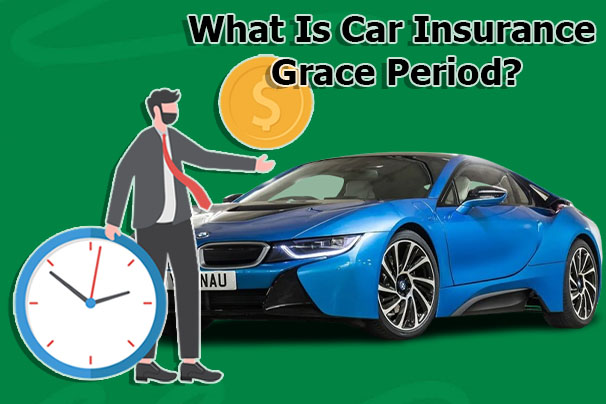Drivers who skip a payment on their car insurance might still have coverage during a grace period. The grace period commences when an individual fails to pay their car coverage premium on time due to various reasons such as health, job loss, or forgetfulness. Most car insurance companies offer a grace period ranging from three to thirty days, though this varies depending on the provider and state.

Moreover, you won’t have to worry about losing your insurance because you can’t afford to pay at this period. Before you take a brand-new automobile for a drive home, you must present proof of current insurance. Furthermore, to prevent lapses, it is advisable to make your insurance payments on time, regardless of the circumstances.
What Is Car Insurance Grace Period?
The car insurance grace period is the amount of time you have to add your new car to your auto policy before you can legally drive it. The length of this grace period varies by state and insurance company, but it lasts no more than 30 days. However, it’s advisable not to depend on this grace period.
There may be serious repercussions if the vehicle is still uninsured after the grace period has passed. Additionally, a grace period is only applicable if you currently own or are trading in an insured vehicle. There is no grace period if your other vehicle is uninsured. Furthermore, you will need to purchase insurance at the dealership over the phone or online.
How Does Car Insurance Grace Period Work?
If your policy provides full coverage for car coverage, it is likely that during a grace period, your new vehicle will also get coverage by the same coverage. During the grace period for new car insurance, your coverage may be severely restricted if you have a liability-only policy. Generally, the best coverage on your policy applies temporarily to your new car if you have numerous vehicles on it, each with a different level of coverage. Moreover, whether you purchase your newer car from a private seller or a dealer, temporary coverage is applicable.
What Is the Duration of Car Insurance Grace Period?
The grace period for auto insurance may vary throughout insurance providers. Additionally, some insurers could offer you a grace period of up to 90 days. This implies that to keep using the services, you must renew your car insurance coverage within three months after the expiration date.
The policy is canceled even if you miss the grace period. You will now need to buy auto insurance once more to resume policy services. After the grace period ends, you will lose the no-claim incentive. Therefore, it is possible to view the grace period as the last chance before the motor coverage is canceled.
What Happens If You Do Not Renew My Car Insurance on Time
A few days late payment shouldn’t be an issue because most auto insurance providers give a grace period for missing payments. Since the grace period for auto insurance can differ according to your insurer, please make your payment as soon as possible. You may avoid missing payments in the future and receive a discount on your auto insurance when you enroll with the help of an insurer.
When Does a Car Insurance Grace Period Not Apply?
The insurance grace period will not apply if you purchase a new car without a valid auto insurance policy. In this situation, all you have to do is search around for auto insurance and purchase a new policy for your car. Obtaining multiple vehicle insurance quotes can help you find the best rate for your needs, considering the remaining time before driving off the lot. Rates might differ significantly between companies depending on several characteristics unique to you and your vehicle.
If your insurer doesn’t offer a grace period or you’ve exhausted all your coverage, your car insurance grace period may not apply if your policy is still in effect. To obtain coverage in either scenario, you’ll need to include your car with your policy. If something goes wrong, you can be charged with driving without insurance, which might have serious repercussions.
Final Thoughts
It’s advisable to purchase car coverage as soon as possible rather than waiting for a grace period to expire. If you don’t get coverage or add your new auto to your existing policy before the grace period expires, you risk fines and increased insurance rates.


